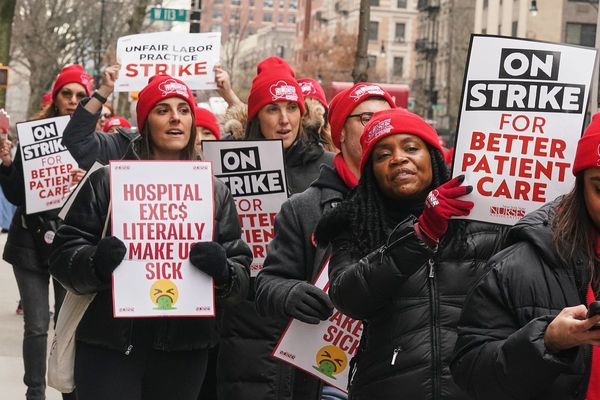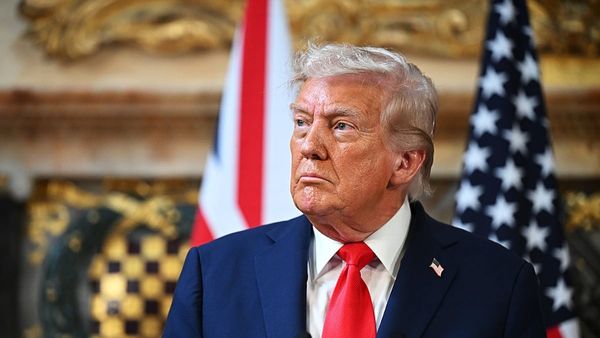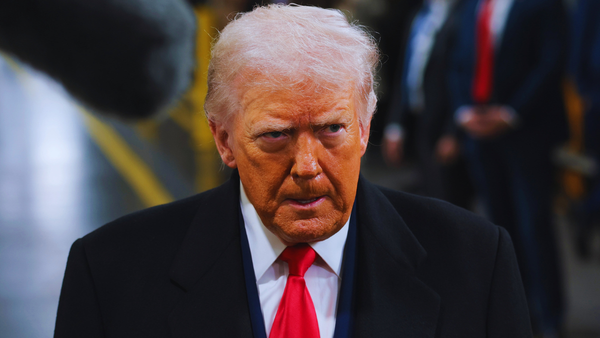
A couple in their forties, Santosh Dhiman and Savita Dhiman, are waiting outside their home in Mhow, a town close to Indore city in Madhya Pradesh. A man riding a motorcycle arrives with three gas cylinders strapped to the pillion seat. “The cylinder now costs Rs 950,” says Savita as she helps the man unload the cylinder. “Ration like rice, dal, oil adds up to an expense of nearly Rs 5000 every month in our household,” Savita says.
Savita is a homemaker and her husband Santosh earns Rs 12,000 every month working as an electrician. But when they could not keep up with rising electricity and ration prices, their younger son Mayank, 14, dropped out of high school to work at a mobile accessories shop in the town.
The only other support for Savita’s family was Rs 1,000 coming into her bank account every month. “Laadli Behna,” she says, referring to the scheme launched by the Madhya Pradesh Chief Minister Shivraj Singh Chauhan six months before the state Assembly elections.
Under the scheme, a monthly amount is transferred to the bank accounts of women between 21 and 60 years of age. Rs 1,000 was deposited in the first three months before it was increased to Rs 1,250. This was on the condition that the beneficiary’s annual family income is less than Rs 2.5 lakh.
The scheme has helped the BJP soften public anger in Madhya Pradesh in the last six months even as it flies in the face of Prime Minister Narendra Modi’s remarks in 2022 that politicians are trying to “buy the people” by distributing freebies. Modi called this “revdi culture” – likening it to the frivolous distribution of sweets. The BJP led by the PM has mocked opposition parties for its welfare schemes such as the free colour TV scheme by the DMK or the free mixer and grinder scheme by the AIADMK or the Congress’ Gruha Lakshmi scheme which promises Rs 2,000 for women heads of households in Karnataka.
These schemes have been derisively called ‘freebies, even as the BJP has promised free electricity for farmers, scooters for college girls, 2 LPG gas cylinders for free in states like Uttar Pradesh. A BJP leader - Ashwini Kumar Upadhyay – even went on to move the Supreme Court seeking action against political parties that promise or distribute “irrational freebies” from public funds. The petition not only discusses pre-election promises but also seeks a scrutiny of schemes introduced by a ruling government before the elections. Political parties including the AAP and DMK have since filed rejoinders in the Supreme Court opposing the petition.
In Madhya Pradesh, a slew of welfare schemes targeting women voters has become the BJP’s biggest talking point in the run-up to the state elections on November 17. In the last six months, the BJP has not only introduced Laadli Behna, but also transferred Rs 250 into accounts of women on Raksha Bandhan day and announced that gas cylinders would be offered to beneficiaries for Rs 450 during the month of Sawan (July-August). The party has also promised to increase the amount under Laadli Behna Yojana to Rs 3,000 if it returns to power.
And women voters have increasingly turned to the schemes for relief. Of the 5.6 crore voters in Madhya Pradesh, 2.7 crore are women and by July this year, nearly half of them – 1.32 crore women – were receiving deposits in their bank accounts, a reflection of the problems plaguing the state – price rise and lack of employment opportunities.
Among those receiving the cash deposits is Savita, who says the money from Laadli Behna has helped her to buy groceries. “It makes a difference,” says Savita Dhiman. “For a homemaker like me, it gives me some money in my hand every month. And when cash comes in my hand, it is used for my family,” she says, shooting a glance at her husband.
‘Laadli Behna doesn’t compensate for failures’
“It costs me at least Rs 5,000 to buy groceries. This is without considering electricity, water and rent costs,” says Savita. “Everything has become expensive.” Though Savita says she has benefited from the Laadli Behna scheme, she says she is not likely to vote for the BJP as it does not compensate for the state government’s other failures. “They are announcing some relief now but we recognise that it is under their (BJP’s) government that everything has become expensive too,” says Savita.
“We cannot be bribed with a small compensation. The Rs 1,250 from the Laadli scheme comes and goes in a flash. Our lives have not changed. In the last 10 years, my husband’s earnings have increased by Rs 3,000 but the cost of groceries, cylinder and electricity have all soared in this period,” says Kalavathi Rana, another homemaker in Mhow.
BJP leaders TNM spoke to say that the party had recognised the anger over the high cost of living, which they believe played a part in the party losing the elections in Karnataka this year.
“There is no guarantee that the schemes for women will lead to votes but the party feels that the schemes were needed. The most common conversation among voters is now price rise,” says Rajesh Wankhede, a BJP member in Mhow “Will the Congress stop a scheme like this? Even they are advertising a similar Mahila Samman scheme. It is all up to the voter whether they see this as revdi or an initiative that helps address price rise and hunger,“ says Rajesh Wankhede.
BJP leaders in MP further say the party was forced to respond to the Congress announcing welfare measures of its own. The thinking appears to be influenced by the fact that over 74 percent of the women in Madhya Pradesh turned out to vote in the 2018 elections.
The Congress announced a Rs 1,500 cash assistance for women under the Mahila Samman scheme and also promised gas cylinders for Rs 500 for women. The party has also promised to give 100 units of electricity for free and halve the electricity bills for up to 200 units, on the lines of similar schemes introduced in Karnataka.
“When the cost of living is high, it is only fair that the government takes measures to help reduce the burden on people. If the BJP was concerned about women, why wasn’t Laadli Behna introduced earlier and why was it only introduced six months before the elections? It seems the idea is not to empower women but to lure women voters,” says Naveen Saini, a Congress functionary from Mhow.
This report has been published as part of the joint NL-TNM Election Fund and is supported by hundreds of readers. Click here to power our ground reports.
Newslaundry is a reader-supported, ad-free, independent news outlet based out of New Delhi. Support their journalism, here.







